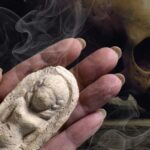The Wisdom Chronicle is designed to bring nuggets of wisdom from the dozens of books I read every year. I endeavor to share the best of what I have gleaned. The determination of relevance lies with you. Blessings, J. Whiddon
471. REAGAN AND GOD In August 1984, Ronald Reagan said this at an ecumenical prayer breakfast in Dallas, Texas:
“We establish no religion in this country, nor will we ever. We command no worship. We mandate no belief. But we poison our society when we remove its theological underpinnings. We court corruption when we leave it bereft of belief. All are free to believe or not believe; all are free to practice a faith or not. But those who believe must be free to speak of and act on their belief, to apply moral teaching to public questions.
I submit to you that the tolerant society is open to and encouraging of all religions. And this does not weaken us; it strengthens us. . . .
Without God, there is no virtue, because there’s no prompting of the conscience. Without God, we’re mired in the material, that flat world that tells us only what the senses perceive. Without God, there is a coarsening of the society. And without God, democracy will not and cannot long endure. If we ever forget that we’re One Nation Under God, then we will be a nation gone under.”
Excerpt From: Lee, Richard. “In God We Still Trust: A 365-Day Devotional.”
472. MULTITASKING “We’d like to think we are unique, that we can do two (or three or four) things at once better than normal people. But very likely we can’t. In his book The Myth of Multitasking, Dave Crenshaw argues that the brain really can’t put forth effort in two mental processes at the same time.5 We can do two things at once when one does not require mental effort. We can walk and have a conversation at the same time. We can eat potato chips and watch TV at the same time. But you can’t e-mail and talk on the phone at the same time, or finish a report and talk to your son at the same time. We may think we are multitasking, but we are actually “switch-tasking.” This is true of computers too. They give the appearance of multitasking, but in reality they are switching back and forth between various programs at rapid speed. If computers can’t do two things at once, we certainly can’t.
Jesus knew that if he were to accomplish the purposes God had for him, he would have to pass up ten thousand good purposes other people had for his life. The Son of God could not meet all the needs around him. He had to get away to pray. He had to eat. He had to sleep. He had to say no. If Jesus had to live with human limitations, we’d be foolish to think we don’t. The people on this planet who end up doing nothing are those who never realized they couldn’t do everything.”
Excerpt From: DeYoung, Kevin. “Crazy Busy.”
473. SLEEP “Because you stayed up all night on Thursday, you’ll invariably crash on Friday. If not on Friday, you’ll sleep an extra five hours on Saturday. If you don’t catch up on sleep over the weekend, you’ll likely get sick the next week. And if you don’t get sick and you keep pushing yourself on empty, your productivity will slide. Or you’ll get into a car accident when you are beyond exhaustion. Or you’ll snap at your friend and cause a relational meltdown that takes weeks to mend. The time you thought you stole cannot be so easily filched. You cannot cheat sleep indefinitely. And the longer you try to borrow against sleep, the more your body (or God) will force you to pay for those hours—plus interest.
When I read D. A. Carson’s sermon on religious doubt a few years ago, I was struck that one of his six possible causes for doubt was “sleep deprivation.”
Excerpt From: DeYoung, Kevin. “Crazy Busy.”
474. HIRING GOOD PEOPLE “We don’t look for a skill-set as much as we look for a mindset.”
— Ed Portier
475. YOU ARE WHAT YOU THINK “Thought and character are one.”
“That circumstances grow out of thought every man knows who has for any length of time practised self-control and self-purification, for he will have noticed that the alteration in his circumstances has been in exact ratio with his altered mental condition. So true is this that when a man earnestly applies himself to remedy the defects in his character, and makes swift and marked progress, he passes rapidly through a succession of vicissitudes.”
Excerpt From: Allen, James. “As a Man Thinketh.”
476. IT’S ABOUT RELATIONSHIPS “perhaps the most unforgettable image was described by New Yorkers who had watched in horror as people trapped high in the towers chose jumping to death rather than burning. As one witness described the sight of men and women leaping out of windows: “It was raining people.” That alone pushed me to tears as I sat in solitude on my couch. Another witness added the detail that many of the jumpers had fallen in pairs: “People were holding hands jumping.” Unbelievable, I thought. Only seconds to live, one final act remaining, and it was still all about relationships. Those people needed each other. We all need each other.
I spoke with Joe about something I’d been unable to get off my mind—the people on the hijacked planes who had used cell phones to say their final goodbyes before crashing. In frantic calls to family and friends, all had shared three simple words they wanted to leave behind: I love you. I told Joe that I could not help but make a connection to our conversation about false masculinity. There had not been a single news account of anyone on those planes spending his final moments rehashing what a great athlete he’d been as a youngster, how many girls he’d scored as a teen, how much money and power he’d amassed as an adult. Nodding in agreement, Joe said, “Nobody was calling their brokers.”
Excerpt From: Marx, Jeffrey. “Season of Life.”
477. HAVING A CAUSE “When I die, when I’m lying on my deathbed, what am I thinking?” Joe said. “Well, I’d like to be thinking that I’ve accomplished something during my time here. You know, I didn’t die with the most toys. I didn’t die with the most money. But I left something behind me. I had a cause. And my children, I know that they all learned the importance of having a cause.”
Excerpt From: Marx, Jeffrey. “Season of Life.”
478. NOAH WEBSTER “Father of American Scholarship and Education,” Noah Webster (October 16, 1758–May 28, 1843) gave us the very first American Dictionary of the English Language. In it, he defined education as “the bringing up, as of a child; instruction; formation of manners.” He went on to say, “To give children a good education in manners, arts, and science is important; to give them a religious education is indispensable.”
Webster believed a well-educated citizenry was essential to the preservation of freedom. Convinced that “information is fatal to despotism,” he wrote textbooks that covered moral formation and civic education, as well as spelling and grammar. He wrote:
“An attempt to conduct the affairs of a free government with wisdom and impartiality, and to preserve the just rights of all classes of citizens, without the guidance of Divine precepts, will certainly end in disappointment. God is the supreme moral Governor of the world He has made . . . If men will not submit to be controlled by His laws, He will punish them by the evils resulting from their own disobedience. . . .”
In my view, the Christian religion is the most important and one of the first things in which all children, under a free government ought to be instructed. . . . The Christian religion must be the basis of any government intended to secure the rights and privileges of a free people.”
Excerpt From: Lee, Richard. “In God We Still Trust: A 365-Day Devotional.”
479. FREEDOM FROM AMBITION “Blessed are those whose lawless deeds are forgiven, and whose sins are covered; blessed is the man against whom the Lord will not count his sin. (Rom. 4:7–8)
Understanding this magnificent truth will transform how you think about your dreams. Apart from God, our quest for greatness is often a search for approval. I want to be applauded and esteemed. I live for praise. I attempt great things because I crave being celebrated. Selfish ambition is often a desperate quest for an earthly “Atta-boy,” a drive to fashion a world that worships me.
Our search for approval is over. In Christ, we already have all the approval we need. All the time and energy I once squandered trying to be liked or praised or to achieve something to validate my existence can now be redirected toward doing things for God’s glory. I no longer live for approval; I live FROM approval.”
Excerpt From: Harvey, Dave. “Rescuing Ambition.”
480. PASSING ON OUR HERITAGE “Mitchell Paige received the Medal of Honor for his actions at the Battle of Guadalcanal. On October 26, 1942, for hours after all the Marines in his platoon were killed or wounded, Paige operated four machine guns, single-handedly stopping an entire Japanese regiment. Had that position fallen and the Japanese regained the airfield the Marines had taken, the outcome of World War II may have been significantly different.
Why had Paige been willing to put his life on the line for his country? He spoke of his childhood education and being so steeped in the traditions of America that he felt part of our glorious heritage: “My undying love of country, and my strong loyalty to the Marines fighting by my side, gave me no choice but to fight on unswervingly throughout my battles, utilizing my God-given ability to make use of what I had been taught and learned.”
And his mother had taught him well, including in the lunch she had made him for his two-hundred-mile walk to the nearest Marine Corps recruiting station the note, “Trust in the Lord, son, and He will guide you always.”
Excerpt From: Lee, Richard. “In God We Still Trust: A 365-Day Devotional.”



















Facebook Comments